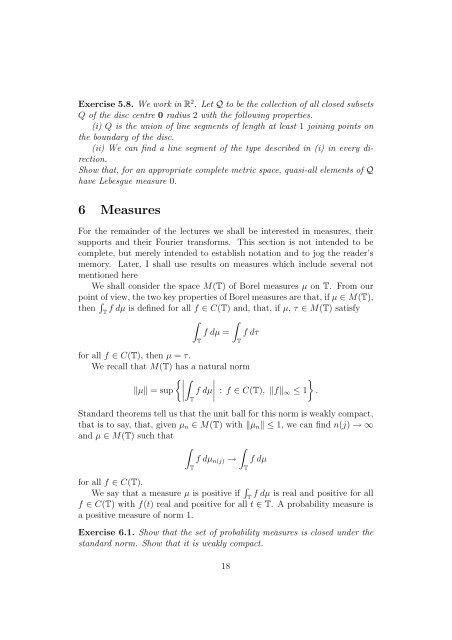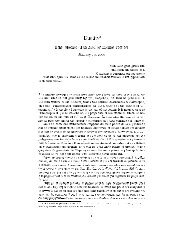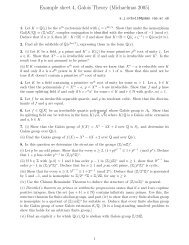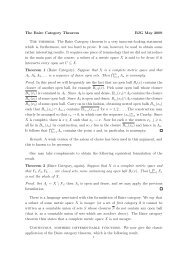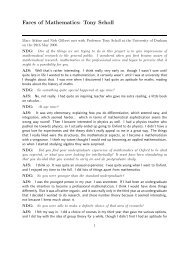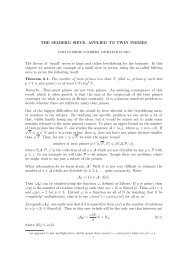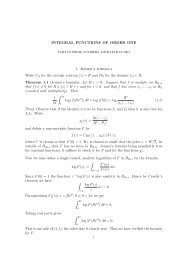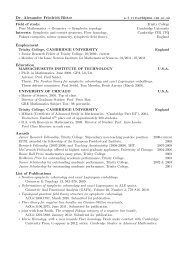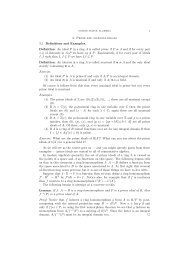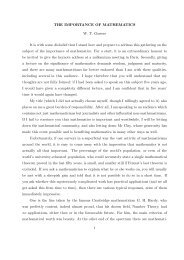Baire Category, Probabilistic Constructions and Convolution Squares
Baire Category, Probabilistic Constructions and Convolution Squares
Baire Category, Probabilistic Constructions and Convolution Squares
Create successful ePaper yourself
Turn your PDF publications into a flip-book with our unique Google optimized e-Paper software.
Exercise 5.8. We work in R 2 . Let Q to be the collection of all closed subsets<br />
Q of the disc centre 0 radius 2 with the following properties.<br />
(i) Q is the union of line segments of length at least 1 joining points on<br />
the boundary of the disc.<br />
(ii) We can find a line segment of the type described in (i) in every direction.<br />
Show that, for an appropriate complete metric space, quasi-all elements of Q<br />
have Lebesgue measure 0.<br />
6 Measures<br />
For the remainder of the lectures we shall be interested in measures, their<br />
supports <strong>and</strong> their Fourier transforms. This section is not intended to be<br />
complete, but merely intended to establish notation <strong>and</strong> to jog the reader’s<br />
memory. Later, I shall use results on measures which include several not<br />
mentioned here<br />
We shall consider the space M(T) of Borel measures µ on T. From our<br />
point of view, the two key properties of Borel measures are that, if µ ∈ M(T),<br />
then <br />
f dµ is defined for all f ∈ C(T) <strong>and</strong>, that, if µ, τ ∈ M(T) satisfy<br />
T<br />
<br />
f dµ = f dτ<br />
T<br />
for all f ∈ C(T), then µ = τ.<br />
We recall that M(T) has a natural norm<br />
<br />
<br />
µ = sup f dµ <br />
: f ∈ C(T), f∞<br />
<br />
≤ 1 .<br />
T<br />
St<strong>and</strong>ard theorems tell us that the unit ball for this norm is weakly compact,<br />
that is to say, that, given µn ∈ M(T) with µn ≤ 1, we can find n(j) → ∞<br />
<strong>and</strong> µ ∈ M(T) such that<br />
<br />
f dµn(j) → f dµ<br />
T<br />
for all f ∈ C(T).<br />
We say that a measure µ is positive if <br />
f dµ is real <strong>and</strong> positive for all<br />
T<br />
f ∈ C(T) with f(t) real <strong>and</strong> positive for all t ∈ T. A probability measure is<br />
a positive measure of norm 1.<br />
Exercise 6.1. Show that the set of probability measures is closed under the<br />
st<strong>and</strong>ard norm. Show that it is weakly compact.<br />
18<br />
T<br />
T


